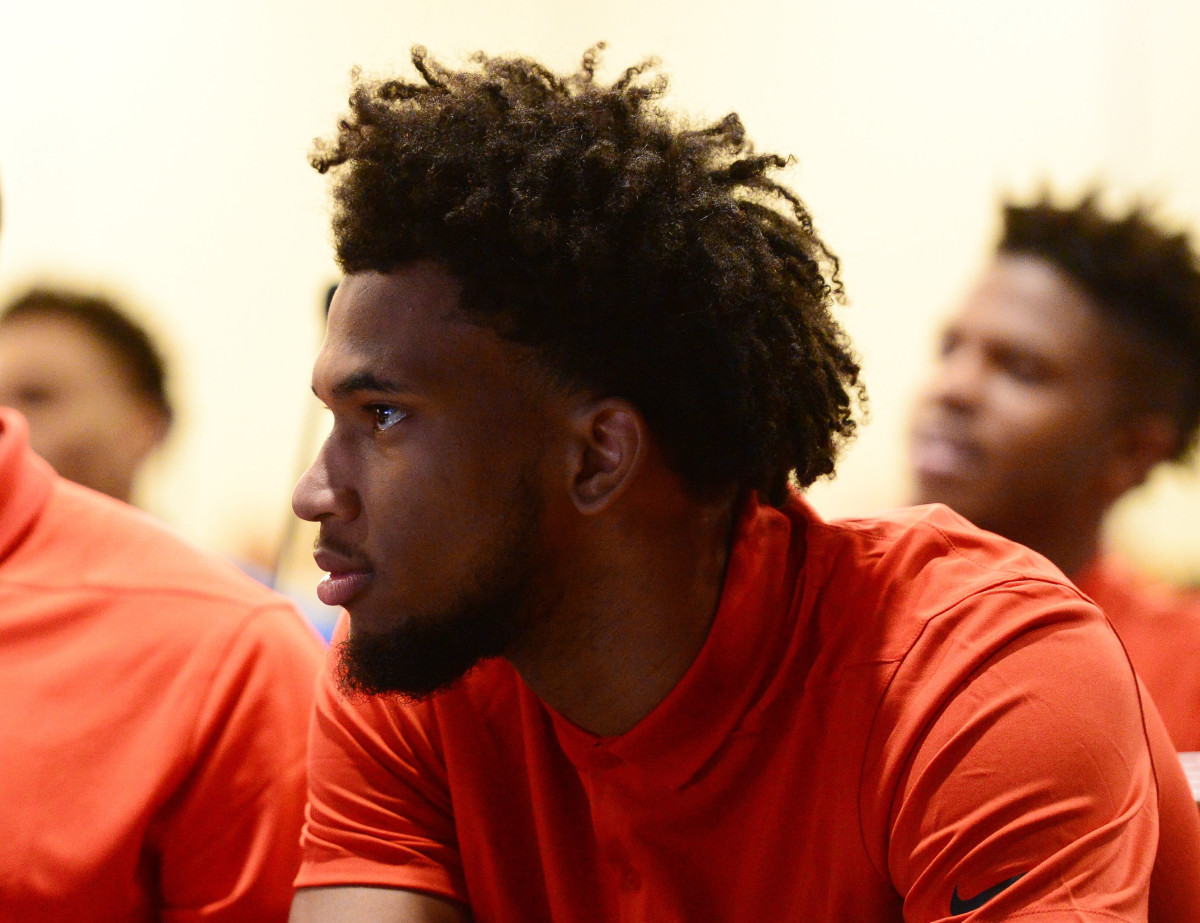Marvin Bagley, Mo Bamba Take First Steps Toward Social Activism at Rookie Training Program

The basics of the NBA’s Rookie Transition Program—held in Parsippany, New Jersey, each August—follow the same general path of other major American sports leagues. New draftees learn tips for money management, media training and general wellness, with the NBA looking to smooth the adjustment to the professional ranks.
But during the 2018 iteration of the NBA’s transition program, the league broached a topic not common among most rookie symposiums: social activism.
The Man Behind Kemba Walker's Rise to Point Guard Royalty
As the NFL remains embroiled in controversy regarding protests during the national anthem, the NBA has taken a lead on addressing social issues within the community. And that charge has largely come from the top, both on the court and in the league office. NBA rookies and Players’ Association personnel praised NBA commissioner Adam Silver for his encouragement and embrace of player activism, stressing the open dialogue created by the NBA and its players.
“I think Adam, along with [NBPA Director] Michele Roberts, have set the tone if you will and understood what the current political environment is like,” said Purvis Short, NBPA Chief of Player Programs. “They’ve been nothing but supportive when our players have chosen to use their voice and make a statement.”
A far cry from Michael Jordan’s apolitical stances of the '90s—which, in fairness, have been amended in recent years—the league’s top stars have taken a lead on social activism in recent seasons.

LeBron James has decried police violence by donning a hoodie for Trayvon Martin and an “I Can’t Breathe” t-shirt in tribute to Eric Garner, continuing to use his platform in the Trump era. At the 2016 ESPYs, James was joined by Dwyane Wade, Chris Paul and Carmelo Anthony, urging athletes to use their platform for social change. The league’s most revered player has set a precedent for the 2018 rookie class. James has emboldened the new draftees to take an active presence in their communities even before setting foot on an NBA floor.
“There have been times where I wanted to say something about certain things, but I was hesitant to speak out because I didn’t want anything to happen,” Kings rookie Marvin Bagley said. “But seeing a guy like LeBron speak up and use the platform he has, it’s definitely something I want to do. I don’t want to be afraid to say what I have to say.”
Zion Williamson, R.J. Barrett Highlight Duke's Impressive Canada Tour
Rather than shy away from the issue of social activism, the NBA and Players’ Association have opted to take a proactive stance, aiming to teach incoming rookies how to use their platform both on a local and national level.
“There is this tremendous platform and huge responsibility our players have,” said Greg Taylor, the NBA’s Senior Vice President of Player Development. “We try to educate our guys on strategies to become leaders, how to become knowledgeable, how to contact leaders that are already active in those spaces. The Rookie Transition Program plays a vital role in starting that conversation with our guys.”
While James, Anthony and Co. needed to mature before becoming outspoken in the community, the past few rookie classes needed nothing of the sort. Some of the league’s youngest players have emerged as strong voices, writing essays, sporting sneakers and even taking to Harvard to discuss issues important to them.
The young voices have followed a recent trend in the NBA, where activism across the league has yet to draw the pushback seen in the NFL. On the contrary, NBA figures have seen their popularity grow from taking stances on a range of issues. James’s “U bum” tweet directed at Trump gained nearly 1.5 million likes on Twitter, and Popovich-Kerr 2020 gear can be bought in the form of t-shirts, coffee mugs, mousepads, tote bags and decals. Social activism in the NBA has become an industry in itself.
The line between sports and society blur by the season, with the issues outside the arena often coming through the ticket gate and onto the court. And the NBA’s incoming rookies aren’t looking to settle into the league before becoming prominent figures in their respective communities. For many, the work has already begun.
“I sat into a meeting with an organization called March for Our Lives before they went and spoke to city hall, and it’s kids who are basically my age sparking social change,” Magic rookie Mo Bamba said. “It will only be a matter of time until I try to use my voice, my platform.”
